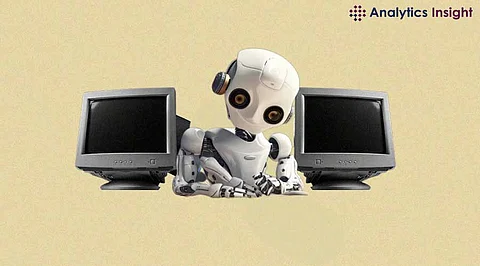

The visible part of the iceberg: "What if machines could think and learn like humans?" This question encapsulates the possibilities of artificial intelligence (AI) as we approach 2025 and beyond. Advancements in AI have the potential to revolutionize industries, enhance human abilities, and reshape ethical considerations. Here is an overview of the key AI breakthroughs expected by 2025.
General AI is one of the most exciting advancements in the broader field of artificial intelligence. While narrow AI is designed to handle specific tasks, General AI can perform a wide range of activities, often much faster than humans. This shift could redefine industries such as healthcare, finance, and education.
By 2025, General AI is expected to enhance decision-making across various sectors. It will analyze vast amounts of data in real-time, providing decision support that leads to better outcomes. For example, in healthcare, AI algorithms could diagnose diseases before symptoms appear, significantly transforming patient care.
AI is already making significant strides in healthcare, and its role will only expand in the coming years. By 2025, predictive analytics could diagnose diseases like cancer and Alzheimer’s much earlier. AI systems trained on large datasets are already identifying patterns in medical images that human doctors might miss. Early diagnosis will lead to more effective treatments, lower healthcare costs, and improved patient outcomes.
For instance, AI could analyze medical imaging results and alert doctors to potential problems, allowing them to make critical decisions faster. This will lead to greater efficiency in the healthcare sector, reducing stress for doctors and delivering better results for patients.
Another important domain of innovation is the promotion of self-operating systems. Automatic automobiles, drones and others shall be more dependent on the AI to learn the environment and make decisions. Current players like Tesla and Waymo are trying to prototype and popularise fully autonomous vehicles; these will reach viable economics by 2025.
These self-driving vehicles will not only contribute to the improvement of transportation but also decrease the number of incidents involving accidents due to human factors. Another promising area that will greatly benefit from advanced decision making AI systems includes roads safety and logistics.
Ethical issues will emerge as AI technologies are adopted in everyday use of the products and services. Concerns related to surveillance, bias in algorithms, and unemployment due to automation are relevant. The place of decision-making as a potential of the AI becomes a source of accountability and transparency.
The regulators are to set those frameworks within the next seven years to facilitate the ethical development and application of AI. To promote the use of AI solutions, the ethical and innovative aspects of its applications have to be brought together.
Quantum Computing: Some of the critical areas of AI development can be attributed to its backbone.
Quantum computing is predicted to change data processing and, therefore, AI over the coming few years. Different from classical computers, quantum computers make use of quantum bit, more known as qubits that support sophisticated computations in hardly imaginable time. This improvement will enable AI systems to work through big data sets to improve their learning process.
In practice, such as cryptography, AI can benefit from quantum computing to adequately protect data and information. It is expected that key-based classical techniques may no longer be effective and there will be a need for new quantum-safe solutions. The integration of the two technologies will pave ways to solutions for a myriad of challenges in different sectors ranging from the financial to the health sector.
The idea of the metaverse widens the applications of AI in communication and entertainment. AI-powered avatars will produce surrounding worlds, making the difference between real and digital life quite faint.
In entertainment, AI will be useful in proactively recommending content delivery to one’s desire while they watch. AI will be a continuation of social presence as more people use virtual worlds to socialize thus enhancing community formation.
The advancements Asians expect to achieve by 2025 are not just technological, but a paradigm shift in the society. These include healthcare advancements to self-driving cars, smart systems in industries, and the metaverse to become part of everyday experience.
It shall also be pertinent to state that dealing with the ethical concerns of AI technologies will always be relevant and necessary as these technologies develop. It means that with a proper approach to innovation, people can use all the advantages of AI for a better future. Intelligent transition towards an effective and efficient world can now be said to have commenced and its successful outcome depends on every player.
